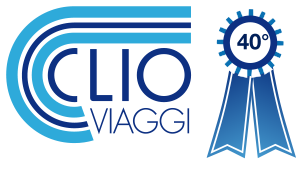2. Villa Reale di Monza (Monza Royal Villa)
The Villa Reale di Monza is a neoclassical masterpiece, commissioned in 1777 by Archduke Ferdinand of Austria, son of Empress Maria Theresa. Designed by Giuseppe Piermarini, the same architect behind Milan’s Teatro alla Scala, it was envisioned as a symbol of Habsburg refinement, later becoming a royal residence of the House of Savoy.
Inside, light dances across grand staircases and polished floors, leading into rooms adorned with delicate stuccoes and faded frescoes. There’s a quiet formality here, the kind that once hosted diplomacy and courtly rituals, yet still feels surprisingly close.
At the top, the Belvedere opens out onto sweeping views of the gardens below, where geometric lines meet the softer curves of English landscape style, echoing the 19th-century taste for balance between nature and design.
3. Parco di Monza (Monza Park)
Larger than Versailles and among the biggest enclosed parks in Europe, the Parco di Monza (also known as Monza Park or Royal Park) spans over 688 hectares. Commissioned in the early 19th century by Eugène de Beauharnais, Napoleon’s stepson and Viceroy of Italy, the park exemplifies a harmonious blend of Italian formal design and English landscape style.
Within its vast expanse, shaded trails meander through centuries-old oaks and rolling meadows. Scattered throughout are romantic features like the neoclassical Tempietto and a faux medieval tower, evoking a sense of timeless charm. That’s why it’s considered one of the most rewarding things to do in Monza, especially for those seeking a slow afternoon immersed in nature, history, and local life.
4. Monza’s historic center
Monza’s historic center is compact, refined, and layered with history. The cobbled streets lead to Piazza Trento e Trieste, the city’s main square, where medieval facades blend seamlessly with 19th-century elegance.
At its heart stands the Arengario, a 13th-century town hall built in red brick, once used to call citizens to assembly. Just beyond, side streets like Via Lambro and Via Carlo Alberto thread past wrought-iron balconies and family-run trattorie, casual Italian eateries known for traditional, home-style cooking. Meanwhile, Via Italia showcases early 20th-century Liberty-style storefronts, adding to the area’s architectural diversity.
5. Monza Cathedral
Behind its striped marble facade, the Duomo di Monza (Monza Cathedral) holds centuries of devotion, power, and art. Its very walls tell a layered story: Romanesque roots, Gothic arches, Baroque flourishes; a sacred patchwork shaped by time and faith.
Among the cathedral’s most sacred legacies is the Iron Crown of Lombardy: believed to contain a nail from the True Cross and once placed on the heads of kings and emperors, from Charlemagne to Napoleon.
Today, the crown is preserved in the Museo del Tesoro (Treasure Museum), part of the cathedral complex. While it’s only displayed on special occasions, the museum offers visitors a rich collection of religious art and artifacts that speak to the cathedral’s enduring spiritual and cultural legacy.
6. Ponte dei Leoni (Lions’ Bridge)
Built in the early 19th century on the site of an ancient Roman crossing, the Ponte dei Leoni links past and present. Its name, Bridge of the Lions, comes from the four sculpted lion guardians that stand watch at each corner, noble and unmoving.
From here, Monza opens up in one of its most iconic views: the River Lambro flowing below, the dome of Monza Cathedral rising nearby, and the soft geometry of the historic center unfolding ahead.
7. Art and design at the Triennale di Monza
Long before Milan became the capital of Italian design, Monza helped lay the foundation. In 1923, the Villa Reale hosted Italy’s first Biennale of Decorative Arts: a pivotal event that set the tone for a century of Italian aesthetics.
Today, the Triennale di Monza continues that legacy with rotating exhibitions on design, architecture, and applied arts.
8. Take a break in a historic café
Monza’s café scene may be quieter than Milan’s bustle, yet no less rooted in ritual.
Step into a historic café and you’ll find marble floors worn smooth by decades of footsteps, brass fixtures polished to a gentle glow, and the hum of conversation rising above clinking cups.
Order a slice of torta paesana, a rustic dessert rooted in Lombardy’s peasant traditions. Once made to avoid waste, using stale bread, cocoa, pine nuts, and raisins, it now carries the weight of memory, a sweet, dense reminder of the region’s unpretentious warmth.
9. Enjoy a concert or event at the Villa Reale
The Villa Reale is also a cultural stage. Throughout the year, its neoclassical halls and manicured courtyards host a vibrant calendar of events: from chamber music and jazz nights to contemporary art exhibitions and open-air cinema under the summer sky.
Here, attending an event feels less like visiting a venue, and more like stepping into a story still unfolding.
Monza: where elegance meets adrenaline
Monza moves between worlds, from the thunder of the racetrack to the quiet geometry of royal gardens. Here, contrasts don’t clash: they coexist, seamlessly. One moment, you feel the rumble of a Formula 1 engine; the next, the hush beneath centuries-old oaks.
Whether you’re drawn by the thrill of the 2025 Italian Grand Prix in Monza or the timeless charm of its historic villas and cafés, this city, with its many things to do, invites you to experience its unique blend of excitement and elegance.
